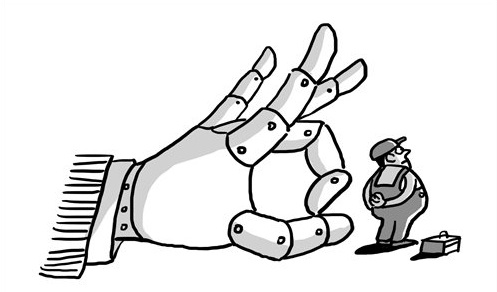Jean Pisani-Ferry writes: In 1983, the American economist and Nobel laureate Wassily Leontief made what was then a startling prediction. Machines, he said, are likely to replace human labor much in the same way that the tractor replaced the horse. Today, with some 200 million people worldwide out of work – 30 million more than in 2008 – Leontief’s words no longer seem as outlandish as they once did. Indeed, there can be little doubt that technology is in the process of completely transforming the global labor market.
To be sure, predictions like Leontief’s leave many economists skeptical, and for good reason. Historically, increases in productivity have rarely destroyed jobs. Each time that machines yielded gains in efficiency (including when tractors took over from horses), old jobs disappeared, but new jobs were created. Furthermore, economists are number crunchers, and recent data show a slowdown – rather than an acceleration – in productivity gains. When it comes to the actual number of jobs available, there are reasons to question the doomsayers’ dire predictions. Yet there are also reasons to think that the nature of work is changing.
Rather than try to stop the unstoppable, we should think about how to put this new reality at the service of our values and welfare. In addition to rethinking institutions and practices predicated on traditional employment contracts – such as social security contributions – we will need to begin to invent new institutions that harness this technology-driven transformation for our collective benefit. The backbone of tomorrow’s societies, after all, will be built not by robots or digital platforms, but by their citizens. Laborers’ Future

